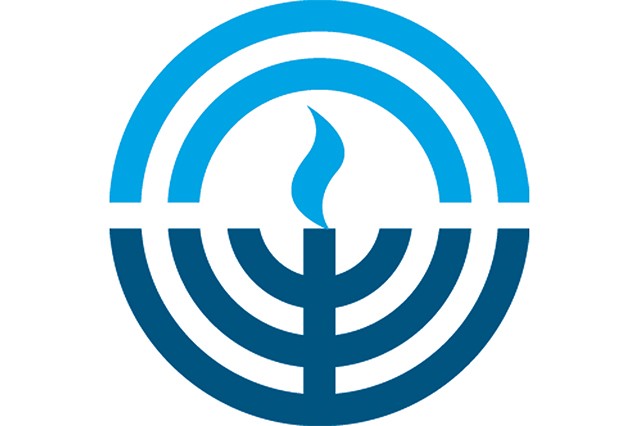
What Happens Now? From the Desk of Jerry Silverman
Dear Colleagues,
The Federation movement touches more Jewish lives than any other entity on the planet. In the breadth of that reach, there is more than one opinion, more than one methodology, more than one way of looking at any given situation at any given time. This summer’s debate over the Iran nuclear agreement was a perfect example of this diversity of perspectives.
Yet for all the differences among us, which played out in living color these past few months, I know there is one thing on which we can all agree: Federation is the organization that can lead the reinvigoration of our community when the votes on the Iran agreement are behind us.
We are uniquely positioned to serve in this role. No, we don’t speak for every Jew. But we remain the central Jewish address in our cities and towns. This is our mission; it was relevant more than 100 years ago, is even more significant today and will continue to be critical tomorrow.
This summer, as the debate ensued over the Iran issue, we lived our mission.
Federation was the primary convener of opportunities to hear from both sides regarding the implications of the deal. JFNA hosted five webcasts, including ones with the prime minister of Israel and the president of the United States, drawing more than 40,000 registered participants and countless thousands who watched on varying cable channels and other web platforms.
After great introspection, 39 Federations expressed apprehension about the agreement, and 25 opposed it. But every community watched the unfolding of events with deep concern. And we all are aware that after the Congressional debate over the agreement draws to a close, the issue of preventing Iran from acquiring nuclear weapon capability will be far from over. It will be important that we continue to encourage our nation’s leaders to ensure verification of Iran’s adherence to the accord as well as a nimble and appropriate response to any violations. A strong U.S.-Israel relationship will be vital for both nations to manage the trials ahead.
But we also face new challenges.
How do we build bridges in our communities? Many places were torn by one of the most complex issues facing North American Jewry in generations. First, we need to refocus on what united us throughout this trying period.
Every one of us took on the solemn responsibility of educating our constituencies on the wide-ranging and long-term implications of this accord. We all believe that Iran must be prevented from developing a nuclear weapon. We all are concerned—even those who support the deal—that Iran will violate the agreement. Second, we need to accept that debate—even an intense, painful one—is at the center of who we are as a people. The Talmud is not merely an explanatory workbook to help us better understand the Torah. It is a copious record of millennia of discourse over its meaning. Even the seating arrangement of the classic yeshiva was set up for standoff: two individuals face to face across the table, arguing different interpretations of the word of G-d. The entire way we approach our relationship with G-d is indeed a topic of constant discussion; to be Yisrael is to be one who struggles, dissents, argues. But these traditions were never intended as mechanisms to divide our people.This brings me to my third point. The esteemed Rabbi Lord Jonathan Sacks has described conflict management as “the single greatest unresolved problem in Jewish history.”
How do we keep community cohesion, even during, and especially after, conflict? We can glean many lessons about this from our own religious traditions. For example, the Pardes Institute of Jewish Studies has its own center dedicated to Judaism and conflict resolution. Other Jewish institutions have similar programs. We will be integrating many of these lessons and these scholars into the GA, and we encourage you to do the same in your communities.
Fourth, we must stand together against retribution. Withdrawing a Federation gift that feeds the hungry, sends kids to camp and provides solace to Holocaust survivors over the Iran issue? That is indeed retribution. And it is contrary not only to our mission as a community, but to the precepts of Jewish law upon which our existence depends. I would also add that vitriolic condemnation of Israeli and American leaders—and each other—is an imprudent way to handle situations like this one.
Finally, we need to get practical and prepare ourselves for the challenges and the opportunities ahead.
Israel is likely to become a more controversial issue generally, and potentially a more divisive issue in our community. Boycott, divestment and sanctions efforts are likely to proliferate, especially on college campuses.
Yet while so many eyes were focused on the Iran issue over the summer, the 500,000th young adult arrived in Israel on a Birthright trip. The 8,000,000th PJ Library book arrived in the mailbox of a family somewhere in North America; for many families, this is their primary connection to Jewish life. Federation funds continue to ensure that thousands of displaced Jews in Ukraine have their needs met, and that tens of thousands of Holocaust survivors receive much-needed care.
We Jews only represent 1.8% of the American population today. In order for us to continue to make a difference, we must remain unified as a people and a community. We don’t have to agree on issues; however, we must have unity. As we prepare for the High Holidays and gather as families, congregations and communities, let us bring in 5776 with a renewed commitment of debate with unity. We are so blessed as a people—and with that, we have profound responsibilities and opportunities together.
Shana tova, and a healthy, happy and sweet new year to all.

0Comments
Add CommentPlease login to leave a comment